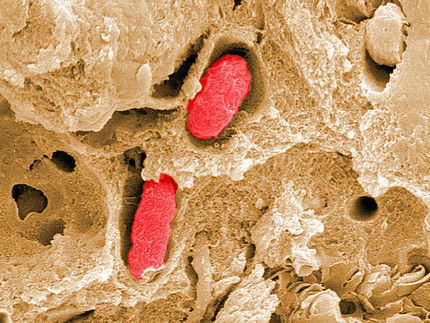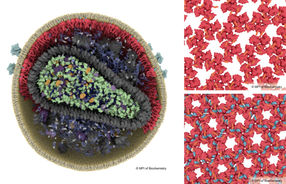Researchers Identify Genetic Mutation That May Alter Patients' Response to Cancer Therapeutics
Recurring mutation found in breast, colorectal and ovarian cancers
Researchers from Eli Lilly & Company and the Phoenix-based Translational genomics Research Institute (TGen) announced finding a novel recurring mutation of the gene AKT1 in breast, colorectal and ovarian cancers. The altered form of AKT1 appears to cause tumor cell proliferation and may play a role in making cells resistant to certain types of therapies. The findings are reported in an advance online publication (AOP) of the journal Nature.
The PI3-Kinase/AKT pathway is among the most commonly activated cellular pathways in human cancers and members of this pathway are among the most frequently targeted for new cancer drug discovery efforts. Activation of this pathway results in cancer cell growth and cell survival. Although AKT1 is central to pathway activation, its role in cancer has been that of an intermediary between mutated upstream regulatory proteins and downstream survival signaling proteins. This is the first evidence of direct mutation of AKT1 in human cancer tumors: it was discovered in clinical samples from cancer patients, yet has never been detected in cancer cell lines.
To identify the AKT1 mutation, the researchers analyzed 150 tumor samples from patients with either breast, colorectal or ovarian cancer (50 samples from each tumor type). Analysis of the data showed that 8 percent of breast, 6 percent of colorectal and 2 percent of ovarian tumors had the AKT1 mutation in the samples that were screened in their study.
"Recently, molecular features such as the AKT1 mutation are beginning to change drug development efforts. This discovery adds to the short but growing list of molecular features that may help guide both current and future cancer drug development," said John Carpten, PhD, Senior Investigator and Director of TGen's Integrated Cancer Genomics Division and the study's lead author. "The next step is to determine the prevalence of the AKT1 mutation in different populations and, hopefully, use the information gained to stratify patients going into clinical trials for AKT inhibitors."
The identification of the AKT1 mutation was a collaborative effort between Eli Lilly & Company and TGen. If validated by further studies, the identification of this recurring mutation has the potential to impact cancer treatment and drug development.
Most read news

Get the life science industry in your inbox
By submitting this form you agree that LUMITOS AG will send you the newsletter(s) selected above by email. Your data will not be passed on to third parties. Your data will be stored and processed in accordance with our data protection regulations. LUMITOS may contact you by email for the purpose of advertising or market and opinion surveys. You can revoke your consent at any time without giving reasons to LUMITOS AG, Ernst-Augustin-Str. 2, 12489 Berlin, Germany or by e-mail at revoke@lumitos.com with effect for the future. In addition, each email contains a link to unsubscribe from the corresponding newsletter.
More news from our other portals
Last viewed contents
OctoPlus wins drug development and manufacturing contract from Danish pharmaceutical company





















































